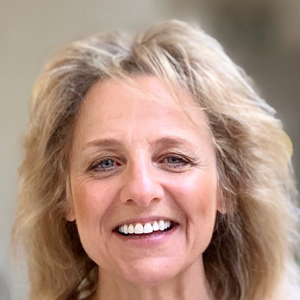Volunteer Ruth Franks provides monthly music sessions at our London Destitution Service. She shares what music means to her and how her sessions bring happiness to our service clients.
What has led you to music and volunteering?
I am happy to say that music has been the background to all of my life. I started my musical life as a singer in my father’s dance band and even made a record when I was 15 years old. I went to stage school for a few years and as a teenager, I featured on many radio adverts and joined my father and his jazz band for a late night live midnight session on Radio 2.
In my 20s, I performed every night in the bars and restaurants of 5 star hotels around the world, from London to Delhi, Sweden, Denmark, Hong Kong and Singapore. In London, I worked for many years at The Bombay Brasserie in Gloucester Road. I was also a session singer for various programmes on BBC Radio 2, sometimes singing with a 60 piece big band orchestra and other smaller combinations. At 24, I got the guest spot singing on the BBC1 television programme, Pebble Mill at One, featuring my own composition, “No pressure, no fuss”.
In my late 30s, I decided to stop touring around and stay home to do a Jazz Music Degree at Middlesex University, which included music in education. I played the piano in Montessori nurseries and that is where I found my first child to teach piano. By word of mouth, my business grew and I took on a new life teaching piano and putting children through their classical and jazz grades which I have continued doing ever since.
The interesting part is that the first child I started teaching, is that of a fellow Refugee Council volunteer. We have been great friends for over 20 years, and when I heard of the nature of the work that she does at the Destitution Centre, I volunteered my services to her and she told me to come along and try out a session.
What do you do when you volunteer at the Refugee Council?
Since July 2017, I have been turning up once a month with my keyboard or ukulele, which I used on my first visit and I shall continue to do so. With my past experience of singing and entertaining, I have a unique perspective of how to use my energy through my music.
I believe that I inherited it from my father, who was an entertainer and musician and, incidentally, a Life Governor for the Jewish Blind Society where he volunteered many of his hours entertaining. He spent the latter part of his life raising money for various charities and entertaining in nursing homes. I guess the apple doesn’t fall far from the tree and makes me feel closer to him.

What impact do you think your music has on our clients?
I am definitely a friendly people person and my music allows me to go a step further as I am able to encourage a safe space for people to sit, listen or even take part with some percussion instruments that I bring along each time.
I see many people at the centre who visit regularly and have built up a knowledge of names and faces, many of whom have told me how much they enjoy the time we spend together. I always look forward to my monthly sessions and always walk away feeling grateful that I was able to leave the clients and the volunteers and staff happy.
What have been your volunteering highlights?
I have two major highlights—last year, I received the Marsh Volunteer Award from the Marsh Christian Trust, which celebrates the work of volunteers. This enabled me to buy a PA system for the Destitution Centre so that I did not have to borrow one or strain my voice each month. It also enabled me to go on a course in Amsterdam to train with Musicians without Borders, giving me a huge insight into the work that other musicians are doing to help refugees.
The other highlight is that recently at the end of one of my sessions, I finished by saying “Cheers and good health”. A client smiled back at me and said, “…and for the good days yet to come”.
I had just been singing ‘Don’t worry, be happy’ and for that moment, this man had completely forgotten his circumstances and met me in the land of happiness, hope and positivity. I felt compelled to write this song for him and I now sing it to him at least twice every time I see him, which has helped to make him feel special and happy.

